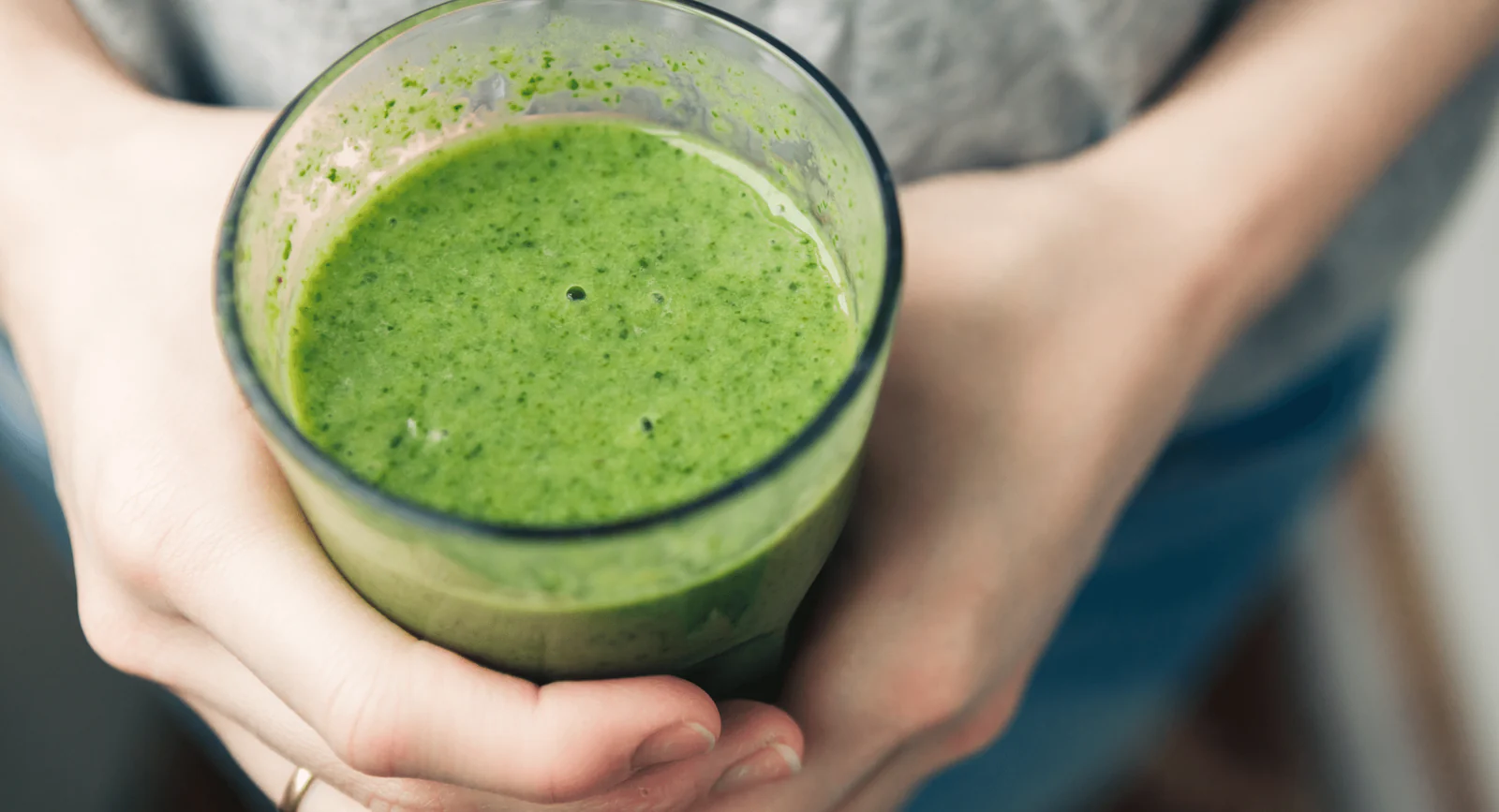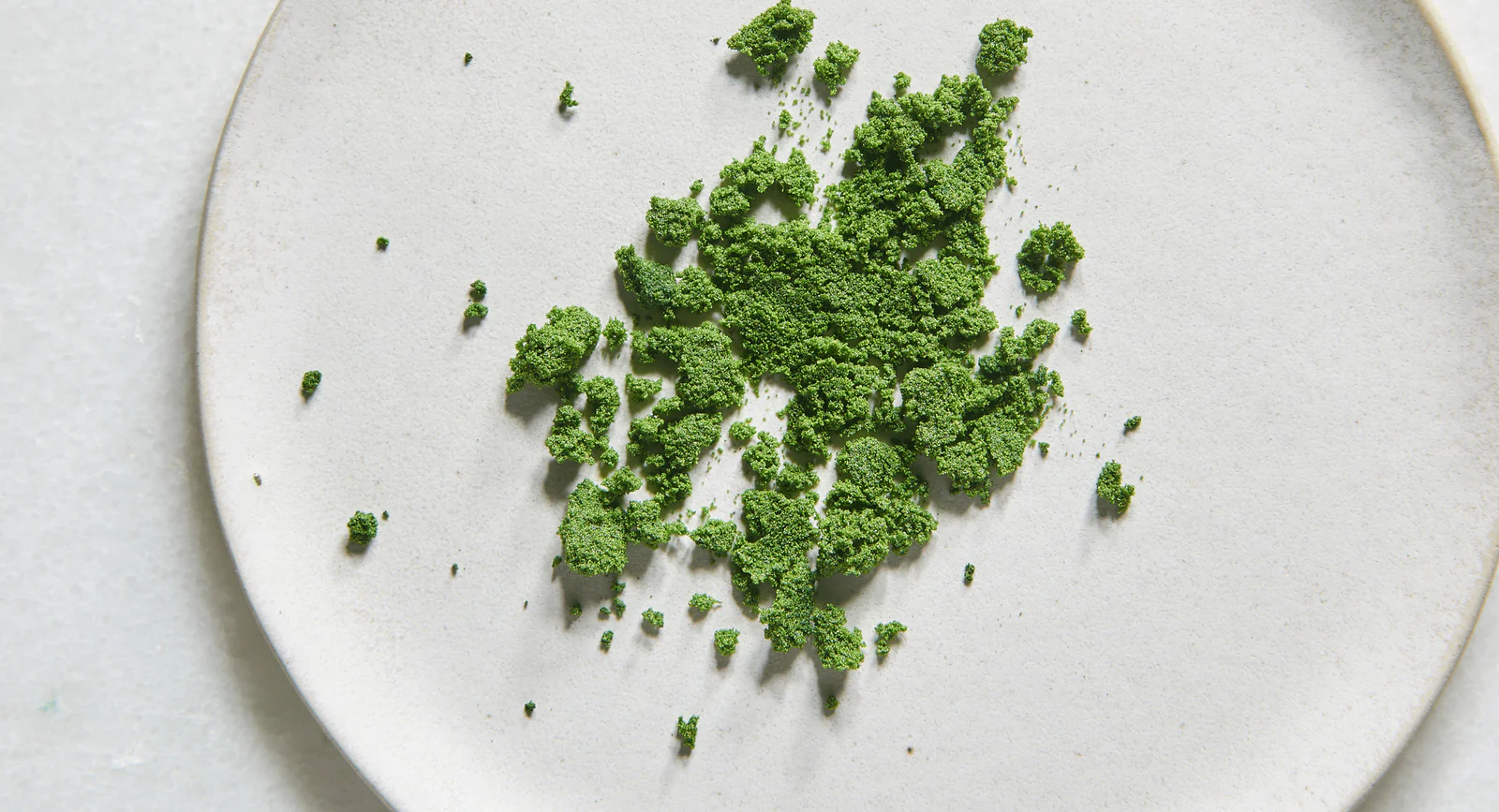When I first found out about Mankai, I was enamored by its unique story. Mankai grows in hydroponic pools, but originally belongs to a family of plants that grow in Asia and have been consumed for hundreds of years. Recently, Mankai has been making headlines as nutrition's "next big thing". Despite the positive buzz, I am a dietitian and scientific confirmation means more to me than anything else. Mankai may have a rich history, but Mankai research is relatively new. That said, several international clinical studies have focused on Mankai, publishing promising results.
Mankai is a vegetable, and although vegetables don't contain vitamin B12, Mankai does. It's not the plant-based version of vitamin B12, either. Mankai's vitamin B12 absorbs in the human body like the animal-based version. Mankai also contains all essential amino acids, omega-3 and many other minerals and vitamins. I am thrilled to be one of the first to learn so much about Mankai and its impressive qualities. It seems like Mankai isn’t "the next big thing" or a passing trend, but rather a food everyone must know about.
Weather changes and early sunsets are hard to miss, and winter is drawing near. Usually, all it takes is the first rain of the season for people to start frantic searches for the dietary supplement that can boost their health. But when it comes to making our immune system stronger though food, things are a little more complicated. Many foods support our immune systems in different ways and we need them all, just like an army needs its air force, infantry, navy, intelligence and so on. Every corps has a different assignment yet together, they get the job done. That's how foods also work. They work separately to benefit the immune system as a whole.
Here are some of nutrients that benefit our immune system: quality proteins, omega-3, zinc, iron, vitamin A, vitamin E and polyphenols. Each nutrient works differently. Some build cells in our immune system, while others protect them and help them function properly. One of the most effective ways to blend these nutrients in our daily diet is by adding Mankai to our routine. Mankai is a tiny (0.5 millimeter) green. It's small, but contains all of the aforementioned nutrients. Mankai can be found as a frozen vegetable, packaged and sold straight from the greenhouse.
The inflammation reducers: Omega-3 and polyphenols
Our bodies are familiar with inflammations. They happen naturally and are monitored by our systems. But sometimes, when the inflammations become more intense, we feel compelled to "boost" our bodies' natural defenses with foods that contain anti-inflammatory properties like omega-3. Omega-3 is a highly researched nutrient, which not only reduces inflammations, but can also fortify the body's natural defense mechanisms – including our immune system.
Contrary to other fatty acids found in foods, omega-3 is something our body cannot generate on its own. Therefore, it is essential we consume omega-3 on a daily basis. According to global health organizations, the recommended daily dosage of omega-3 for a healthy adult is in the 500-3000 mg range. Despite the popularity of dietary supplements, it is recommended to consume not more than one gram a day, with the rest coming naturally from the food we eat. Two Mankai balls contain 120 mg of omega-3, as well as polyphenols. The anti-inflammatory mechanism of polyphenols has not been entirely proven, but an interesting hypothesis does exist: it is possible that in addition to strengthening the body's systems, polyphenols delay virus replication – including the flu virus.
The interesting correlation between protein consumption and immune system activity
Anyone who has ever studied nutrition is probably familiar with "building proteins". This term seems basic but it's actually a very accurate description of what proteins do. Proteins are structures built from amino acids, which function a little like Lego – they build constructs. These constructs are called proteins. In addition to building bone and muscle tissue, our body's proteins also build elements within our immune system – cells, enzymes and molecules that participate in the body protection process. This is why protein consumption is so important to immune system health.
Eating enough protein every day is only one side of the story. Why? Because choosing the right proteins also matter. Proteins are available from animal and plant-based sources; animal-based proteins are filled with saturated fat, and therefore are connected to our body's increased inflammation parameters. On the other hand, eating "lean" proteins (fish, chicken, eggs and quality plant-based protein) is actually linked to reducing body inflammations – which is very good news for our immune system.
So, if we eat lean proteins most days of the week and consume fatty proteins no more than one or two days, we're off to a great start. In addition to preventing inflammation processes, amino acids also play a role in our immune system. Some are responsible for creating immune system cells, while others ensure these cells function property – and so on. Smart nutrition provides the body with all the amino acids it needs, supporting the development of a strong immune system.
One of the ways to obtain high-quality lean protein is by consuming plant-based proteins. But not every plant-based protein offers all essential amino acids the body needs, and therefore it is important to pay attention to the type of protein we choose to digest. Mankai, for example, is a plant-based source for protein that includes all essential amino acids, which are also characterized by clinically-proven high absorption quality.
The vitamins and minerals that build and protect immune system cells
Zinc isn't a mineral we think about often, but it's actually very important to our health. Studies link zinc deficiency with higher viral disease risk – including the winter viruses we try so hard to avoid. Regarding the immune system, Zinc's role is most likely to encourage cell reproduction – a role shared by iron as well. Cell reproduction is important, but so is their distribution, which is assisted by vitamin A. Mankai contains iron, zinc and provitamin A (beta-carotene), which in addition to its vitamin A benefits is also an antioxidant.
Another vitamin found in Mankai and that has antioxidant abilities is vitamin E. Oxidation processes occur in our body naturally, and the body counters them and their potential damage with antioxidants. Unfortunately, environmental causes such as radiation, pollution and smoking enhance oxidization, and therefore we must enhance our antioxidant system with plant-based antioxidants. Vitamin E is an effective antioxidant that generally helps protect immune system cells. In recent years, studies have focused on its effect on the flu. Vitamin E works in synergy with another antioxidant we're all familiar with – vitamin C. So, if you consume vitamin C for your immune system, don't forget vitamin E as well.
Protecting the immune system requires a comprehensive nutritional effort. Here's to a fun and healthy winter!
The Author Karen Ann Gaiman, Dietitian RD






